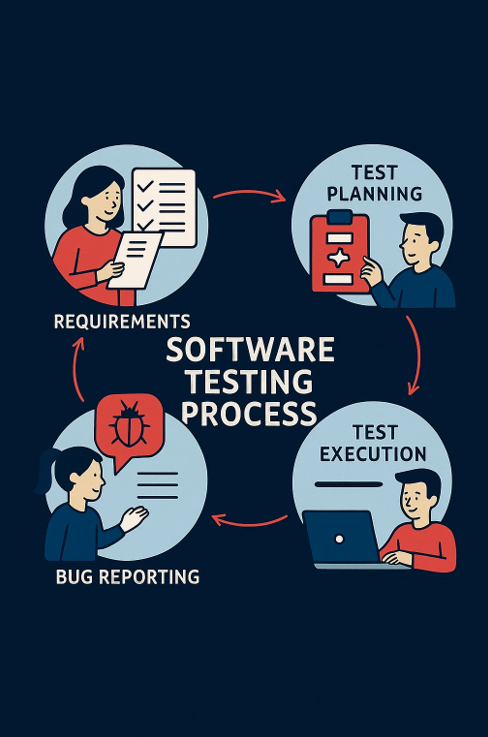The world of software testing is evolving at a rapid pace, and keeping up with the latest frameworks can be daunting. As we approach 2025, developers and quality assurance teams need to stay informed about the top tools that ensure software reliability and efficiency. In this article, we'll explore the leading software testing frameworks that are set to dominate the industry in 2025.

Before diving into specific frameworks, it's crucial to understand what software testing frameworks are. Essentially, they are a set of guidelines or rules used for creating and designing test cases. These frameworks provide a structured approach to testing, making the process more organized, efficient, and repeatable.
There are different types of software testing frameworks, each serving unique purposes, such as unit testing, integration testing, and performance testing. Choosing the right framework depends on the specific needs of your project and team.
1. Selenium
Selenium has been a staple in the software testing community for years and continues to be a top choice in 2025. It's an open-source framework used primarily for automating web applications. Selenium supports multiple programming languages like Java, Python, and C#, making it versatile and accessible for many developers.
Key Features:
· Cross-browser testing
· Supports multiple operating systems
· Integrates with various tools like Jenkins and TestNG
2. Cypress
Cypress is quickly gaining popularity due to its modern approach to testing web applications. Known for its speed and reliability, Cypress is designed specifically for JavaScript frameworks like React, Angular, and Vue.js.
Key Features:
· Real-time reloads
· Automatic waiting for commands
· Rich debugging capabilities
3. JUnit
JUnit is a long-standing favorite for unit testing, particularly in Java applications. As a simple and efficient testing framework, JUnit is still relevant in 2025 for its ease of use and integration with other tools.
Key Features:
· Annotations for test organization
· Test runners for executing tests
· Integration with build tools like Maven and Gradle
4. TestNG
TestNG is inspired by JUnit but offers more flexibility and additional features, making it a powerful tool for testing in Java. It supports a wide range of test configurations and is suitable for both unit and integration testing.
Key Features:
· Supports data-driven testing
· Parallel test execution
· Annotations for configuration and sequencing
5. PyTest
For Python developers, PyTest remains the go-to framework for testing. It's known for its simplicity and scalability, making it suitable for both small and large projects.
Key Features:
· Simple syntax for writing tests
· Extensive plugin ecosystem
· Fixtures for managing test setups
As technology advances, new frameworks continue to emerge. Here are a few promising ones to keep an eye on:
6. Playwright
Developed by Microsoft, Playwright is gaining traction for its ability to automate Chromium, Firefox, and WebKit browsers with a single API. It's especially useful for end-to-end testing of web applications.
Key Features:
· Supports multiple browsers
· Network interception capabilities
· Built-intest runner
7. Robot Framework
Robot Framework is a versatile automation framework suitable for acceptance testing and robotic process automation (RPA). Its user-friendly syntax and extensive library support make it accessible to testers of all skill levels.
Key Features:
· Keyword-driven testing
· Supports multiple platforms
· Integrates with Selenium and other tools
When selecting a testing framework, consider the following factors:
· Project Requirements: Determine the type of testing needed (unit, integration, performance) and choose a framework that aligns with those needs.
· Team Expertise: Assess your team's familiarity with the programming languages and tools supported by the framework.
· Integration Needs: Ensure the framework integrates seamlessly with your existing development and testing tools.
· Community Support: Opt for frameworks with active communities and regular updates to stay ahead of industry trends.
Conclusion
As we look forward to 2025, the landscape of software testing frameworks is both exciting and challenging. By understanding the strengths and capabilities of each framework, you can make informed decisions that enhance your software development process. Whether you're a seasoned developer or a QA professional, staying updated with the latest tools will ensure your applications are robust, reliable, and ready for the future.
By integrating these frameworks into your workflow, you can improve testing efficiency and software quality, ultimately delivering better products to your users. Stay ahead of the curve by exploring these top frameworks and emerging tools, and position your team for success in the fast-paced world of software development.